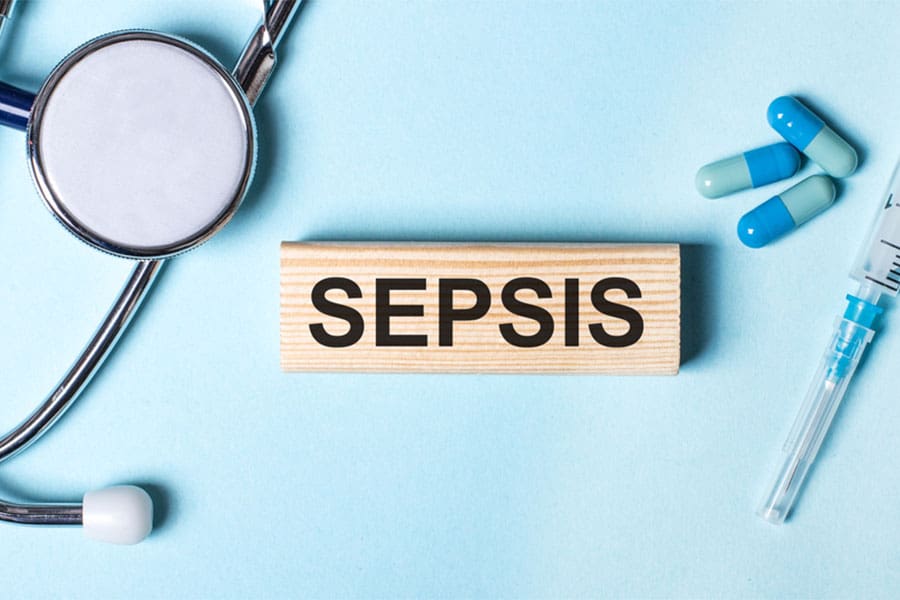As part of our ongoing work to keep people informed and aware of various health issues, both physical and mental, we would like to take this opportunity to look at Sepsis.
As First Aid Training Specialists, most of our work is focused on teaching people the skills with which they can prevent Sepsis. We hear of many scenarios in which a lack of knowledge or skill has led directly to complications resulting in this extreme, life-threatening reaction.
Remember, if you would like to talk to us about our training provisions to businesses and organisations across the UK, call us on 07599 086885 or email us.
What is Sepsis?
Sepsis is a medical emergency. It happens when an infection that you already have makes the body’s response worse. Sometimes, it starts in the lung, urinary tract, skin, or gastrointestinal tract. If not treated right away it can lead to tissue damage and death.
While bacterial infections are the most common cause of sepsis, it can also be caused by other infections including viruses such as flu or Covid-19.
Who is at risk?
Sepsis is fairly indiscriminate in who it can affect; it is very difficult to spot in those who are most at risk. Babies, the elderly, people with weakened immune systems, or chronic medical conditions such as diabetes, cancer, lung, and kidney diseases. It is also difficult to identify in those with dementia, people with learning disabilities, and those who have difficulty communicating.
What are the symptoms?
A person with sepsis might be suffering from a range of symptoms, which are not always easy for a non-health professional to pick up on, much less act upon. If you think you or someone you know may be suffering, you should recommend they seek immediate medical help.
Symptoms are varied, but most commonly show as increased heart rate or low blood pressure resulting in confusion, disorientation, and shortness of breath. It is common to feel sweaty, and feverish while shivering and can come with extreme pain or discomfort.
What should I do?
If you suspect you or someone you know has sepsis you need to seek medical help as soon as possible. The presence or suspicion of sepsis means that an infection is not getting better and could be getting worse, this means that you need professional intervention.
Treatment and Recovery
Sepsis is treatable as long as you get medical help quickly. Get to the hospital and they will administer antibiotics. If it is not treated early, it can cause your organs to fail – this is called septic shock. Depending on your symptoms you may need to stay in hospital for several weeks, have a stint in intensive care, surgery, and in some cases, help to breathe in the form of a ventilator – all of which are unpleasant.
Most people make a full recovery but it can be a long road. Along with the obvious physical recovery period, you may experience emotional trauma which may require some sort of therapy in order to make a full recovery. Make sure you check what help is on offer through your health service.
How to avoid sepsis
Sepsis is not something you can necessarily avoid but you can take measures to prevent infections that can lead to it. Make sure that you keep up with your vaccines, particularly in young people and pregnant women. Make sure you clean and care for any wounds and if you have to complete any courses of antibiotics, even if you’re feeling ok after an illness – as always, wash your hands regularly.
Get in Touch
We are First Aid Training Specialists and provide traditional First Aid and First Aid for Mental Health Training Courses. If you have a staff and would like to speak to us about how we could help with your training requirements, make sure you call us on 07599 086885 or email us. You can also follow us on LinkedIn, Facebook, and Instagram.
